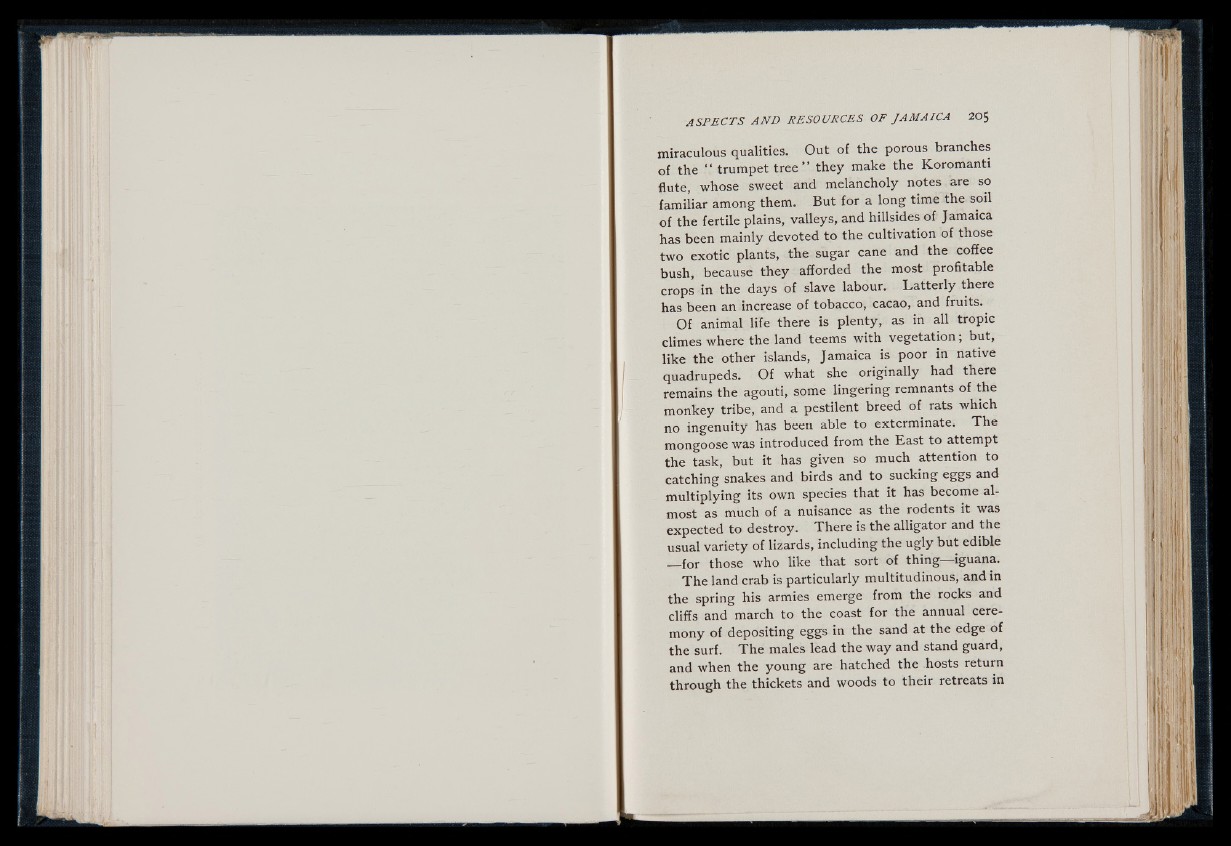
miraculous qualities. Out of the porous branches
of the “ trumpet t r e e ” they make the Koromanti
flute, whose sweet and melancholy notes are so
familiar among them. But for a long time the soil
of the fertile plains, valleys, and hillsides of Jamaica
has been mainly devoted to the cultivation of those
two exotic plants, the sugar cane and the coffee
bush, because they afforded the most profitable
crops in the days of slave labour. L a tte r ly there
has been an increase of tobacco, cacao, and fruits.
Of animal life there is plenty, as in all tropic
climes where the land teems with veg e ta tion ; but,
like the other islands, Jamaica is poor in native
quadrupeds. O f what she originally had there
remains the agouti, some lingering remnants of the
monkey tribe, and a pestilent breed of rats which
no ingenuity has been able to exterminate. The
mongoose was introduced from the East to attempt
the task, but it has given so much attention to
catching snakes and birds and to sucking eggs and
multiplying its own species that it has become almost
as much of a nuisance as the rodents it was
expected to destroy. There is the alligator and the
usual variety of lizards, including the ugly but edible
— for those who like that sort of thing— iguana.
T h e land crab is particularly multitudinous, and in
the spring his armies emerge from the rocks and
cliffs and march to the coast for the annual ceremony
of depositing eggs in the sand at the edge of
the surf. T h e males lead the way and stand guard,
and when the young are hatched the hosts return
through the thickets and woods to their retreats in